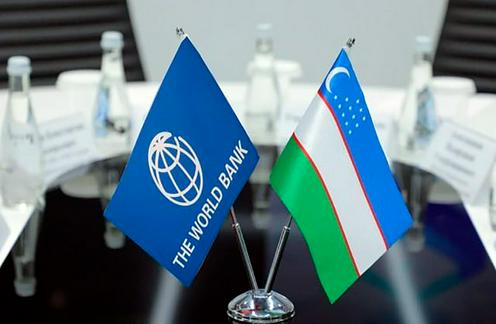The World Bank’s Board of Executive Directors on October 16 approved a financial package of $800 million in concessional loans for Uzbekistan to support ongoing structural reforms, according to a statement from the Bank’s press service.
The funds will be provided to the Uzbek government on long-term terms with a low interest rate. The lending conditions are significantly more favorable than those available on international financial markets, the Bank emphasized.
The loans will support the country’s policies aimed at:
▪️ mitigating the impact of rising energy tariffs on low-income households;
▪️ protecting women from harassment and workplace violence;
▪️ expanding access to social services for vulnerable groups;
▪️ increasing competition in the telecommunications, agricultural, and energy sectors.
In particular, annual compensation payments for low-income families to offset increases in electricity, heating, and gas tariffs will rise from 270,000 soums ($22) to 1 million soums ($82).
Uzbekistan will also strengthen its legal framework for protecting women from sexual harassment and workplace violence. Employers will be prohibited from refusing to hire women, reducing their pay, or dismissing them due to pregnancy or having children.
Vulnerable groups will gain broader access to social services through accredited private and non-governmental organizations.
A National Investment Fund of Uzbekistan will be established to improve the management and privatization of state-owned enterprises. An independent telecommunications regulator will be created to curb state dominance in mobile and broadband markets and attract private investment.
In agriculture, a new insurance system will protect local producers against farming risks. Cotton sector reforms will continue: procurement prices will become more flexible, and textile manufacturers will be able to purchase raw cotton directly from farms, bypassing intermediaries.
In foreign trade, Uzbekistan will accelerate its accession to the World Trade Organization (WTO) and simplify export procedures by removing certain licensing requirements. Exclusive rights previously granted to specific companies in the energy, oil and gas, chemical, and agricultural sectors will be revoked to promote fair competition.
In the energy sector, the electricity distribution market will open to private investors. Independent renewable energy producers will be allowed to sell electricity directly to consumers, helping boost the share of green energy and attract investment for grid modernization.
A National Energy Efficiency Agency will be established to draw private capital into energy-saving projects. Financial incentives will be introduced to support solar energy, heat pumps, and energy-efficient building design. The public procurement system will also adopt environmental criteria, giving preference to eco-friendly goods and services purchased with budget funds.
✅ Notably, a year ago, the World Bank also provided $800 million in concessional loans to Uzbekistan to support private sector development, social protection, and climate resilience.
ℹ️ Uzbekistan joined the World Bank Group in 1992–1993. Since President Shavkat Mirziyoyev took office in 2017, the Bank has significantly increased its financial and analytical assistance to the country. As of April 2024, the World Bank’s project portfolio in Uzbekistan exceeds $12 billion.










